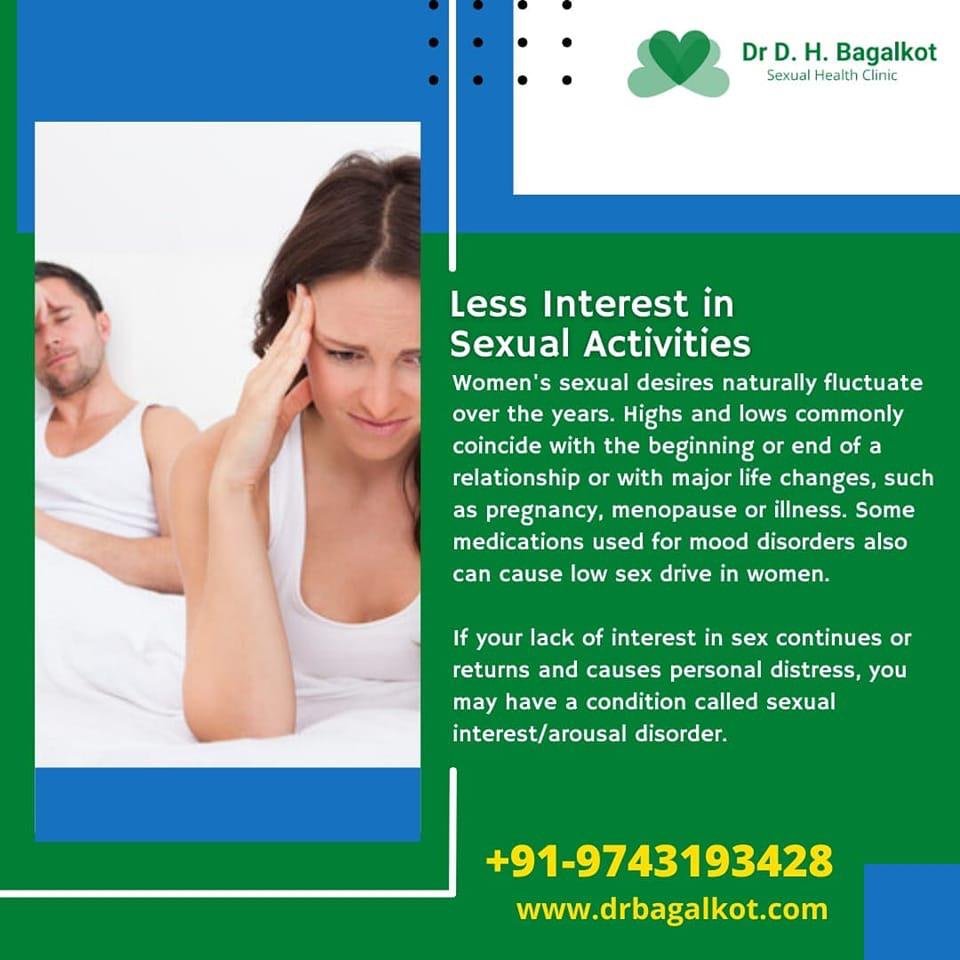Less Interest in Sexual Activities

A decreased interest in sexual activities, commonly referred to as low libido or hypoactive sexual desire, is a relatively common issue that can affect individuals of all genders and ages. It’s essential to recognize that fluctuations in sexual desire are normal, and many factors can contribute to a temporary decrease in interest. Understanding the potential causes and seeking appropriate support can help individuals navigate this aspect of their sexual health.
Changes During the Menstrual Cycle: The amount and consistency of white discharge can change during the menstrual cycle. Around the time of ovulation (mid-cycle), many women experience an increase in clear and stretchy discharge, which is considered fertile mucus and indicates a higher likelihood of fertility. After ovulation, the discharge may become thicker and whiter.
Decreased Interest in Sexual Activities Understanding the Causes and Solutions
- A reduced interest in sexual activities is characterized by a diminished desire for sexual intimacy or a lack of motivation to engage in sexual encounters
- It can manifest as a decreased frequency of sexual thoughts, fantasies, and overall interest in sexual interactions.
A decreased interest in sexual activities, often referred to as low libido or low sex drive, is a common concern that can affect individuals of all genders and age groups. In this article, we will explore the factors contributing to a decreased interest in sex, its potential causes, and strategies to address this issue.

What Is Decreased Interest in Sexual Activities
A decreased interest in sexual activities can have various causes, and it’s essential to identify and address the underlying factors that may be contributing to this issue. Seeking help from a healthcare provider, therapist, or counselor can provide valuable insights and guidance in managing and potentially resolving low libido.
Hormone Therapy: For individuals with hormonal imbalances, hormone replacement therapy may be considered under medical supervision.
Medications: Some medications, including antidepressants, antihypertensives, and hormonal therapies, can have side effects that reduce libido.
Stress and Anxiety: High levels of stress, anxiety, or depression can negatively impact sexual desire.
Relationship Issues: Conflict, communication problems, or dissatisfaction within a relationship can lead to decreased interest in sexual activities.
Fatigue: Physical and mental exhaustion can diminish libido, making individuals less inclined to engage in sexual activities.
Communication: Open and honest communication with a partner is crucial to understanding and addressing any relationship issues that may contribute to low libido.
